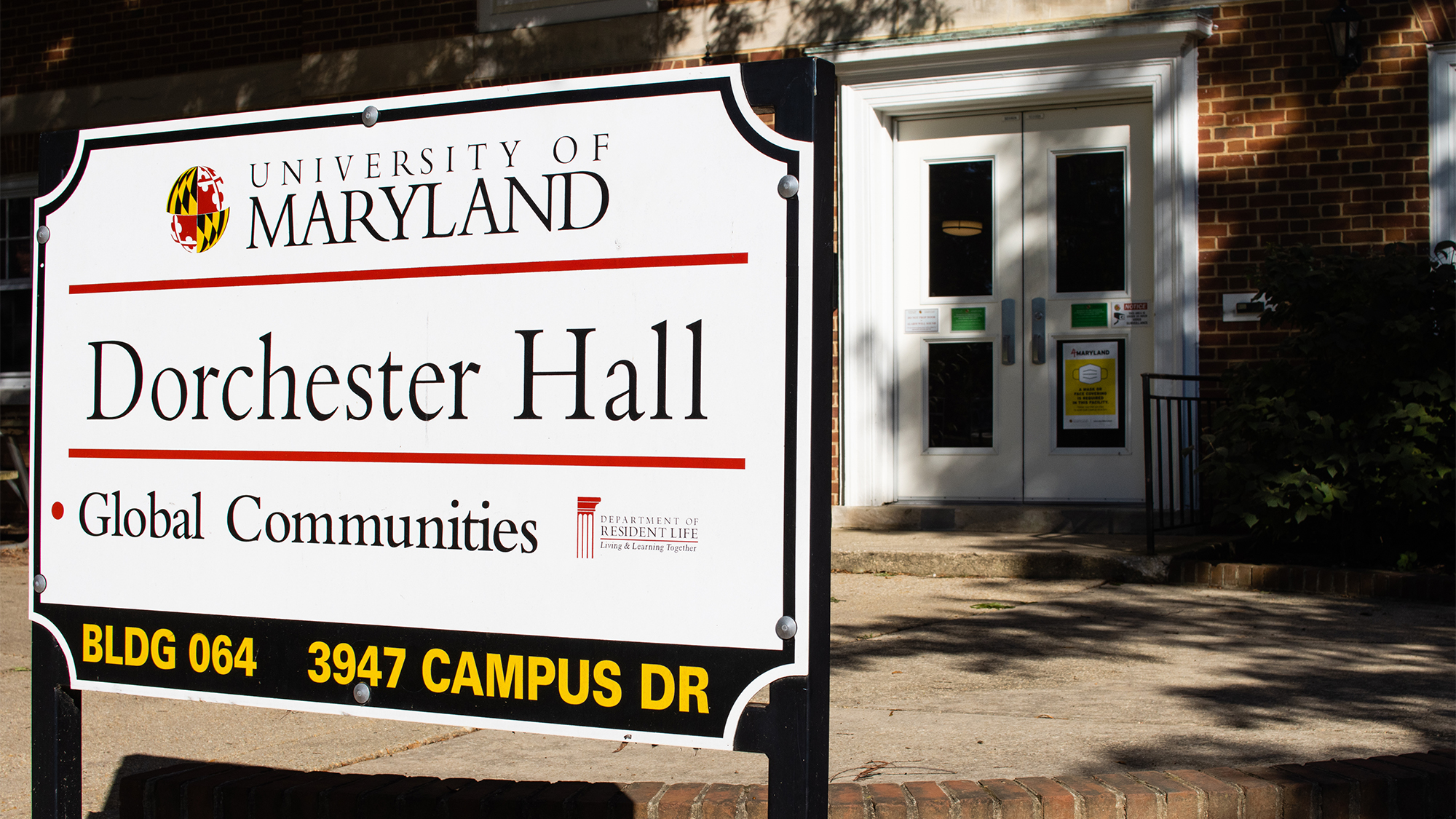Para leer este artículo en español, haga clic aquí.
The Global Communities Living-Learning Program is joining the University of Maryland’s Honors College starting next fall.
The change will mean all incoming students admitted to Global Communities will be a part of the Honors College, where they have an opportunity to earn an honors citation. The transition will not affect students who began the program in the fall 2020 semester — they will complete the program as it currently stands.
An honors citation requires 15 credits of classes, while the current Global Communities track requires 10 credits.
Students who joined Global Communities this semester do not have to join the Honors College. But they can apply to the college and complete an honors citation as long as they meet the Honors College academic requirements.
“If they want, it could mean almost nothing because they will simply continue with the program that they signed up for,” program director Virginia Haufler said. “They come in with a particular program in place, and that is going to be delivered, and their second year could be very similar to what was planned to be from the beginning.”
The change also means students in Global Communities will have access to Honors College resources.
[UMD Honors initiatives aim to support first-generation, underrepresented students]
Based in Dorchester Hall, Global Communities is focused on globalization, global issues and intercultural understanding.
After moving to the Honors College, the program’s name will change to Honors Global Communities.
At the moment, there are typically 65 to 75 students in each year of the two-year program, Haufler said. The target number of students in each cohort of Honors Global Communities is 75, and the program will remain two years long, according to the Honors College FAQ.
Students take required courses in the first year of the program and complete a global experience in the second year, such as study abroad or an internship.
Haufler facilitated the transition with Katherine Russell, the associate dean of the behavioral and social sciences college; Peter Mallios, executive director of the Honors College; and William Cohen, undergraduate studies dean.
“[They] all were very supportive and collaborative in trying to think about how to make this happen in a way that would be beneficial for all the stakeholders,” Haufler said.
[UMD professor hosts podcast about Latinx experiences in higher education]
Roya Ebrahimi-Qajar, a freshman government and politics and Spanish major, is currently a part of Global Communities. She said she’d be interested in aiming for an honors citation but is still “confused” about what the move means.
“It’s a really cool transition to see, and we’re lucky to be in the process of seeing that,” she said. “I want to know a little bit more about what it necessarily means to be in the Honors College.”
Simon Younes, a sophomore international relations and public policy major, is the vice president of the Global Communities Student Association.
He thinks it’s a “natural progression” for Global Communities to join the Honors College, because similar to the honors programs, Global Communities is a living-learning program and offers specific courses that are only available to students in the program.
“I think it will give Global Communities the recognition that it should have,” Younes said. “Being part of the Honors College does come with a little bit of prestige.”
A new program, Interdisciplinary Business Honors, will also join the Honors College in fall 2022.



